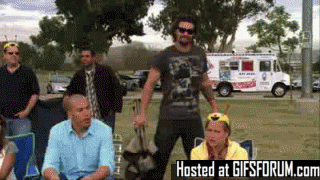Post by mindless on Apr 20, 2015 13:46:31 GMT
The Guardian: 'Peter Molyneux wanted to change the world': why Godus co-designer Jack Attridge is leaving 22Cans
Jack Attridge is leaving 22Cans. The talented designer, who many expected would eventually step in to lead the studio that was set up in 2012 by British industry legend Peter Molyneux, has walked away to pursue his own ideas as an indie developer. “Friday was my last day,” he tells the Guardian in a London coffee shop. “Me and Peter went on a big 10 mile walk and finally said our goodbyes.”
In February, the small team at 22Cans found itself engulfed in a huge controversy over latest project, Godus. The title, a spiritual successor to classic God sim Populous, was long-delayed and missing key features promised during a successful Kickstarter campaign.
Peter Molyneux interview: 'It's over, I will not speak to the press again'
Read more
Attridge, the game’s co-creator, provided a calm presence during the maelstrom, appearing on video with Molyneux to explain the development situation. Essentially Molyneux’s second-in-command, he was widely considered to be the studio’s voice of reason. The film graduate, who previously worked at EA Bright Light and Mind Candy, seemed to be the one capable of reigning in the ambitious proclamations that Molyneux, a much-loved and extremely open industry veteran, had become known for. The way Attridge sees it, Molyneux initially brought him into 22Cans, not only as a designer, but also as the next in line.
“When Peter started talking about this new company 22Cans I got really excited,” he says of his first meetings with Molyneux in 2012. “He said he wanted to change the world. He said he was looking for people with unusual game development experience, to try something different and that really appealed to me. After meeting him he said to me why don’t you come along as a designer, but also as his kind of protege. For a good year it was just me and him designing crazy stuff together every day”.
Over that time, Attridge says that Molyneux helped him to develop a creative voice of his own. While the tutorage was perhaps intended to prepare the young newcomer to take over the studio in the future, it instead gave him the confidence to pursue his own path. “Peter was really good at nurturing talent,” says Attridge. “But after a time I realised I was much more of an advisor at 22Cans and I wanted to be able to steer my own ship.”
In February, Molyneux revealed that he was moving off the Godus project, which had enjoyed a successful smartphone release, but was way behind in its desktop PC incarnation. Co-designer Konrad Naszynski admitted that the remaining team was unlikely to be able to produce several of the key features. “A lot of the multiplayer stuff is looking seriously shaky right now, especially the persistent stuff like hubworld,” he wrote in a forum post. The internet reaction was savage, culminating in a devastating Peter Molyneux interview with Rock Paper Shotgun.
“When you have a team that has been so dedicated to a project for so long it’s going to hit hard when something like that happens,” says Attridge. “Everyone [at 22Cans] is just passionate about making great games and whilst millions of mobile and tablet players had been very positive about Godus, it was hard to ignore the controversy surrounding the Desktop version.
“The team has felt immense highs at certain points and this was a very contrasting low. But that seems to be the risk you take when you put so much of yourself into something. What really impressed me was how quickly the studio was able to bounce back, and I think that was down to Peter’s relentless drive. I really learned something about leadership during that time.”
While many will assume Attridge’s decision to leave is a response to the events of February, it turns out he informed the studio several weeks before Molyneux’s disastrous interviews. “It was January that I said to Peter I was looking to leave 22Cans and go off to start my own thing,” he says. “I was really worried that it might be perceived that I was leaving the studio because of that. It really is a shame because that felt like such a terrible time for us to part ways.”
“I decided that it was time to go off and try my own thing and I explained my idea to Peter who was really supportive. He was sympathetic and gave me loads of advice, he just did everything he could to help us. He signed a waiver so I could start my own company straight away, and he advised me on running a team and a business.”
Unfortunate timing aside, Attridge is insistent that his split from 22Cans was entirely amicable – despite the intensity of the studio culture. “Working with Peter is a bit like a relationship, almost like a marriage, and us splitting up was almost like a divorce,” he says. “While it was so hard to start that conversation after all those years, I think he recognises that it’s time for me to move on. He even offered to let me develop my new game in his house. While it was a really awkward moment, it has been totally amicable. It would have been a real shame to leave on bad terms”.
Attridge won’t say much about how Molyneux reacted to the press fallout. He says it allowed the pair to have some important conversations about the studio and its organisation; the fact that Attridge knew his job was coming to a close meant he was able to spend some time being more open than he otherwise would have been with the creator. “It allowed us to reflect and for me to be quite open about the whole thing,” he says. Though he won’t expand on exactly what he told Molyneux, whatever it was, it may have contributed to the veteran developer’s decision to step back from courting the press and making ambitious public pronouncements.
We may know a lot more soon, however. Before finally leaving 22Cans, Attridge spent some time putting together an intimate, no-holds-barred documentary about the studio, which will apparently soon be released to Godus backers. The film will apparently cover everything from the birth of 22Cans right through to footage of Molyneux’s much discussed interview with Rock, Paper, Shotgun.
“This documentary is my parting gift to Peter and to the team,” says Attridge. “I’ve been filming on my GoPro around the studio over the last couple of years. It cuts quite close to the bone; it’s quite a revealing documentary. It was very emotional for Peter and I, sitting down and watching that together. I’ve handed that off to the team and we’ll see what happens with it”.
As for the future, Attridge showed the Guardian an intriguing tech demo for his upcoming project. He was also clear, however, that he wasn’t ready to reveal it the world at large just yet. Clearly, if Attridge has learned one thing from his time working with Molyneux, it’s that he needs to avoid over-promising on projects before they’re entirely finalised.
“I vowed that I’m not going to say anything about this new game until we can show it,” he says. “It’s really tempting to show it off and talk about it now because we think we’ve got something magical on our hands. We’ve shown only two or three people for feedback so far. We want people to be able to see it and to feel it and to understand that it is the product in front of them and not something else”
“My approach is a result of my work with Peter over the last few years. Peter’s a massively passionate guy and he can’t contain himself when he gets excited about something. Because of iterative development, an idea can start in one form and take a long road by the time it’s done. In spite of traditional PR practices, Peter can’t help himself, he just loves getting out there from the beginning and talking about everything he’s working on. You see his ideas before they’re fully developed and sometimes they just don’t come to pass.”
The plan with the new project is to slowly build a community without making rash promises, and to service that community with updates that reflect the reality of the work, not the ambitious plans: “While it’s really hard to contain ourselves, we made that our philosophy: let’s not say a word until things are finalised.”
So does Attridge have any regrets about his time at 22 Cans? Does he look back on the experience of the last few months with anguish? He says not: “Ultimately there are many careers where you cannot feel emotions on either side of the spectrum to that degree.”
“If you asked any one of us, I think we would say that we’d rather risk facing tough times than to feel nothing at all.”
Jack Attridge is leaving 22Cans. The talented designer, who many expected would eventually step in to lead the studio that was set up in 2012 by British industry legend Peter Molyneux, has walked away to pursue his own ideas as an indie developer. “Friday was my last day,” he tells the Guardian in a London coffee shop. “Me and Peter went on a big 10 mile walk and finally said our goodbyes.”
In February, the small team at 22Cans found itself engulfed in a huge controversy over latest project, Godus. The title, a spiritual successor to classic God sim Populous, was long-delayed and missing key features promised during a successful Kickstarter campaign.
Peter Molyneux interview: 'It's over, I will not speak to the press again'
Read more
Attridge, the game’s co-creator, provided a calm presence during the maelstrom, appearing on video with Molyneux to explain the development situation. Essentially Molyneux’s second-in-command, he was widely considered to be the studio’s voice of reason. The film graduate, who previously worked at EA Bright Light and Mind Candy, seemed to be the one capable of reigning in the ambitious proclamations that Molyneux, a much-loved and extremely open industry veteran, had become known for. The way Attridge sees it, Molyneux initially brought him into 22Cans, not only as a designer, but also as the next in line.
“When Peter started talking about this new company 22Cans I got really excited,” he says of his first meetings with Molyneux in 2012. “He said he wanted to change the world. He said he was looking for people with unusual game development experience, to try something different and that really appealed to me. After meeting him he said to me why don’t you come along as a designer, but also as his kind of protege. For a good year it was just me and him designing crazy stuff together every day”.
Over that time, Attridge says that Molyneux helped him to develop a creative voice of his own. While the tutorage was perhaps intended to prepare the young newcomer to take over the studio in the future, it instead gave him the confidence to pursue his own path. “Peter was really good at nurturing talent,” says Attridge. “But after a time I realised I was much more of an advisor at 22Cans and I wanted to be able to steer my own ship.”
In February, Molyneux revealed that he was moving off the Godus project, which had enjoyed a successful smartphone release, but was way behind in its desktop PC incarnation. Co-designer Konrad Naszynski admitted that the remaining team was unlikely to be able to produce several of the key features. “A lot of the multiplayer stuff is looking seriously shaky right now, especially the persistent stuff like hubworld,” he wrote in a forum post. The internet reaction was savage, culminating in a devastating Peter Molyneux interview with Rock Paper Shotgun.
“When you have a team that has been so dedicated to a project for so long it’s going to hit hard when something like that happens,” says Attridge. “Everyone [at 22Cans] is just passionate about making great games and whilst millions of mobile and tablet players had been very positive about Godus, it was hard to ignore the controversy surrounding the Desktop version.
“The team has felt immense highs at certain points and this was a very contrasting low. But that seems to be the risk you take when you put so much of yourself into something. What really impressed me was how quickly the studio was able to bounce back, and I think that was down to Peter’s relentless drive. I really learned something about leadership during that time.”
While many will assume Attridge’s decision to leave is a response to the events of February, it turns out he informed the studio several weeks before Molyneux’s disastrous interviews. “It was January that I said to Peter I was looking to leave 22Cans and go off to start my own thing,” he says. “I was really worried that it might be perceived that I was leaving the studio because of that. It really is a shame because that felt like such a terrible time for us to part ways.”
“I decided that it was time to go off and try my own thing and I explained my idea to Peter who was really supportive. He was sympathetic and gave me loads of advice, he just did everything he could to help us. He signed a waiver so I could start my own company straight away, and he advised me on running a team and a business.”
Unfortunate timing aside, Attridge is insistent that his split from 22Cans was entirely amicable – despite the intensity of the studio culture. “Working with Peter is a bit like a relationship, almost like a marriage, and us splitting up was almost like a divorce,” he says. “While it was so hard to start that conversation after all those years, I think he recognises that it’s time for me to move on. He even offered to let me develop my new game in his house. While it was a really awkward moment, it has been totally amicable. It would have been a real shame to leave on bad terms”.
Attridge won’t say much about how Molyneux reacted to the press fallout. He says it allowed the pair to have some important conversations about the studio and its organisation; the fact that Attridge knew his job was coming to a close meant he was able to spend some time being more open than he otherwise would have been with the creator. “It allowed us to reflect and for me to be quite open about the whole thing,” he says. Though he won’t expand on exactly what he told Molyneux, whatever it was, it may have contributed to the veteran developer’s decision to step back from courting the press and making ambitious public pronouncements.
We may know a lot more soon, however. Before finally leaving 22Cans, Attridge spent some time putting together an intimate, no-holds-barred documentary about the studio, which will apparently soon be released to Godus backers. The film will apparently cover everything from the birth of 22Cans right through to footage of Molyneux’s much discussed interview with Rock, Paper, Shotgun.
“This documentary is my parting gift to Peter and to the team,” says Attridge. “I’ve been filming on my GoPro around the studio over the last couple of years. It cuts quite close to the bone; it’s quite a revealing documentary. It was very emotional for Peter and I, sitting down and watching that together. I’ve handed that off to the team and we’ll see what happens with it”.
As for the future, Attridge showed the Guardian an intriguing tech demo for his upcoming project. He was also clear, however, that he wasn’t ready to reveal it the world at large just yet. Clearly, if Attridge has learned one thing from his time working with Molyneux, it’s that he needs to avoid over-promising on projects before they’re entirely finalised.
“I vowed that I’m not going to say anything about this new game until we can show it,” he says. “It’s really tempting to show it off and talk about it now because we think we’ve got something magical on our hands. We’ve shown only two or three people for feedback so far. We want people to be able to see it and to feel it and to understand that it is the product in front of them and not something else”
“My approach is a result of my work with Peter over the last few years. Peter’s a massively passionate guy and he can’t contain himself when he gets excited about something. Because of iterative development, an idea can start in one form and take a long road by the time it’s done. In spite of traditional PR practices, Peter can’t help himself, he just loves getting out there from the beginning and talking about everything he’s working on. You see his ideas before they’re fully developed and sometimes they just don’t come to pass.”
The plan with the new project is to slowly build a community without making rash promises, and to service that community with updates that reflect the reality of the work, not the ambitious plans: “While it’s really hard to contain ourselves, we made that our philosophy: let’s not say a word until things are finalised.”
So does Attridge have any regrets about his time at 22 Cans? Does he look back on the experience of the last few months with anguish? He says not: “Ultimately there are many careers where you cannot feel emotions on either side of the spectrum to that degree.”
“If you asked any one of us, I think we would say that we’d rather risk facing tough times than to feel nothing at all.”














